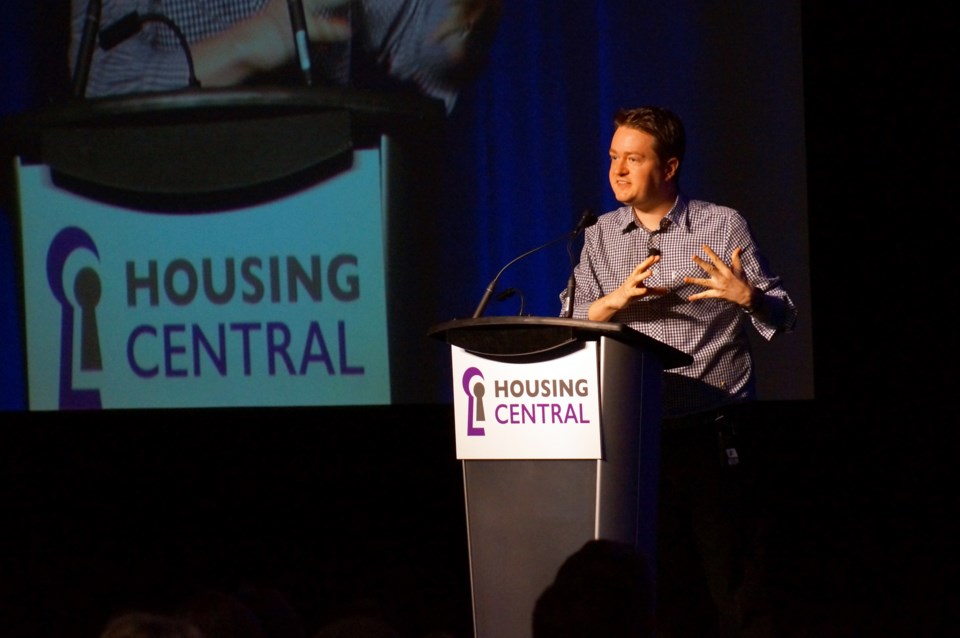Adequate, affordable housing — not a misguided, unscientific and subjective approach to drug criminalization — is the cornerstone of preventing and overcoming drug addiction.
That’s the message British author and drug war critic Johann Hari brought to Richmond Monday at a conference hosted by Housing Central (BC Non-profit Housing Association, Co-op Housing Federation of BC, Aboriginal Housing Management Association and the Pacific Housing Research Network.)
Hari spoke to how housing is critical to an individual’s sense of self-worth and their connection to community — both of which are essential to staying clear from addiction.
“The core of addiction is not wanting to be present in your life because your life is too painful a place to be. Deprivation of housing is not the only cause of that, but it’s a really significant one,” said Hari.
It is a message that resonated with Rick Dubras, executive director of Richmond Addiction Services (RASS), who witnesses the perils of addiction every day in Richmond, where more people have died of opioid overdose deaths this year than any other.
Dubras also said family and community connections, including social and economic, are fundamental to preventing addiction in society. And housing goes hand in hand with those connections.
“This is why programs in Richmond are about building communities. We need to bridge barriers in our multicultural communities where we need to bridge the language gap. And we can look at our economic indicators as well; people are underemployed.
“Our culture is demanding we earn enough money to keep our housing.
“We need to remind our policy makers that family is critical to the development of a healthy community,” said Dubras.
Community connections has been a top concern of medical health officers in Richmond. In a 2015 Vancouver Coastal Health assessment of community health, Richmond residents were found to be physically healthy but lacking in connections more than any other nearby community, which could lead to less healthy outcomes in the future.
And while most residents are safely housed, Dubras and other Richmond social workers note more and more people are falling into perilous housing situations due to a highly-speculative and commodified real estate market.
In his speech to delegates, Hari used the analogy of the Rat Park, by Simon Fraser University psychologist Bruce Alexander.
Rat Park shows rats who were housed in a nice, spacious cage with warmth, comfort, balls and wheels did not drink the heroin-laced water. Rather, they stuck to the regular water. But when placed in a crummy cage, they turned to drugs.
“If you want to understand addiction, understand your cage. Once you know that, the role of housing becomes incredibly obvious,” said Hari.
The war on drugs is a failure, he told the audience, noting Portugal’s efforts to decriminalize and regulate harmful substance use — and to assist addicts with housing, micro business loans and subsidized jobs — has led to a decline in drug injection use, overdose deaths, HIV rates and street crime.
Portuguese politicians “did something incredible. They said, ‘Should we ask some scientists and experts what they think we should do?’ So they set up a panel,” explained Hari.
Here in Richmond, most local politicians are vocally opposed to even marijuana regulation, something Hari suspects will change when the results come in (tax revenue, less addiction and “bankrupting gangs”).
Dubras said Richmond residents need not be “afraid of regulation.”
“This is a public health approach to dealing with addiction,” said Dubras, who sees drug regulation as a “stepped approach” to addiction along with abstinence and harm reduction.



